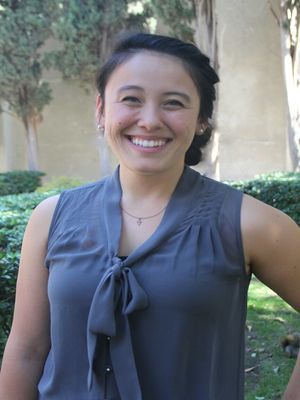What a difference a generation makes!
Twenty years ago, business was labeled as a “jock major.” It was a soft landing for students who couldn’t make up their minds. Back then, the party animals would evolve into marketers who could plan, pitch, and promote. Introverts turned their knack for numbers into accounting gigs. And the risk averse found relief behind enforcing human resources rules.
Now, business has become a magnet for idealists and doers. Washington University’s Ellen Kaushansky even considers business to be a metaphor life. She advises peers, “Don’t worry about sunk costs,” to encourage them to shrug off mistakes and move on. Indeed, academics increasingly view business as the major where students can do the most good, not the least harm. And it has emerged as the discipline that best prepares students for the enigmatic, full tilt reality that awaits them after graduation.
So what exactly are the big takeaways from business school? This fall, Poets&Quants posed this question to over 50 of the best and brightest business majors from the Class of 2016 from the top undergraduate business programs. Not surprisingly, teamwork garnered the most responses.
MORE IDEAS AND BETTER RESULTS THROUGH TEAMWORK
The University of Southern California’s Larissa Purnell initially struggled with teamwork, figuring she could just delegate work between team members – or “divide and conquer” in her words. And this common misconception of teamwork produced the same result as it does in most corporate settings. “This method eventually led to failure as my group project in my accounting class showed how disoriented and uncollaborative our team was in our final presentation.” As a result, Purnell fostered an environment where everyone was involved – and on board with each other – at all stages. “I focused on the importance of a collaborative group space because of the benefits of feeding off each others’ ideas and creating a bond with each other through consensus, both of which contributing to create the best deliverable possible.”
And the team-driven dynamic inherent to business school was an adjustment to students like Indiana University’s Jalen Walker, a USA Today college correspondent who’ll be joining McKinsey after graduation. “I quickly learned that you can have the best idea in the world, but if team members have not all bought in, it’s hard to be successful,” he tells Poets&Quants. In fact, students gained several valuable lessons from teaming up. For one, says Southern Methodist’s Myles Lee, it required thems to learn what motivated their peers so they could develop a consensus on the common goal. And Wake Forest’s Austin Evers, President of the school’s entrepreneurship club, learned that teamwork was a force multiplier that brought out the best in everyone. “I learned the value of relentless perseverance and the importance of surrounding yourself with the right people who often times end up being more capable than you,” he writes.
More than that, working as a team was a good way for students to truly discover where they stood and what they needed to improve. “Virtually every class I’ve taken in the Questrom School of Business has involved a team project, and teams are most often randomly assigned,” shares Boston University’s Emily Tillo, who has interned for both the PGA Tour and UBS Wealth Management. “I’ve worked with people from entirely different backgrounds and with completely unique personalities. Each team experience taught me something new about myself and about managing team dynamics.”
STUDENTS TACKLE AMBIGUITY BY FOCUSING ON DETAILS AND CONSIDERING OUTCOMES
Majoring in business also prepared the Class of 2016 members to grapple with ambiguity – to make decisions off incomplete data and recognize that outcomes are often uncertain or imperfect. As a result, says Cornell’s Ashini Ganesalingam, there are often no hard rules to follow. “The biggest lesson I have gained from studying business is that no two situations are the same,” she emphasizes.
Notre Dame’s Carolina Gutierrez counters business’ vicissitudes by focusing on details and fundamentals. “No matter if it is an old business, or a new one that thrives on innovation and technology, you always have to go back to the basics and review issues objectively,” she shares. “You have to make sure you don’t overlook minor things that might have major impacts down the road. Whenever you don’t understand something, start again by looking at all the details and eventually you’ll place the pieces together and achieve greater understanding of the problems and pitfalls.”
Such situations also compel business majors to look at problems from a variety of perspectives. Almost every single class I have taken at UF has considered international points of view and how our concepts translate across borders, which is increasingly important in today’s global economy,” notes the University of Florida’s Cara Grandstaff.
As part of factoring in paradoxical options and hazy outcomes, business majors learn to weigh the tradeoffs and consequences of their decisions. “We are all stewards,” states Brigham Young’s McKenzi McDonald, who plans to work in supply chain management. “As a business professional I will have the responsibility to look after and care for a lot of people. One decision can affect several different groups, so it is important to understand who those groups are and how to best serve them.”
IMPACT TRUMPING PAY AMONG GRADUATES
And “service” is a theme that runs across responses from several members of this year’s best and brightest. Carnegie Mellon’s Blake Chasin approaches business as more than a means to make money. “I’ve learned that the bottom line isn’t everything,” he explains. “We have a responsibility to make the world a better place through our business endeavors.”
Change makers are also increasing turning to the for-profit sector, seeing it as a more effective way to serve others and leave a mark. “Originally, my dream was to start a nonprofit to assist other nonprofits by providing volunteer and financial support,” writes Indiana University’s Ashley Martinez. “Then I realized the industry was stagnant and for-profit companies actually had greater influence over a non-for-profit’s performance and that for-profits could make a greater impact. By studying business, I’ve learned how to change the world for the better: encourage more sustainable practices, leverage connections, and pursue the greater good.”
Considering business schools’ penchant for teamwork, it’s no surprise that many business majors view the “greater good” as a more compelling reason for businesses to exist than “shareholder value.”And many see collective efforts among businesses as a path for everyone to prosper. “The biggest lesson I have learned is this: You may be able to go faster alone, but you can go farther together,” argues the University of Texas’ Rachael Huynh. “I understand ‘together’ as not just people within a company but also society at large. Since I sincerely view a business as an agent of society, everything it does must create not only financial value but significant social value as well. You may ‘go faster’ financially when considering only your own organization, but you really ‘go farther’ and win in the long term by actually creating social and environmental value for our community.”















Questions about this article? Email us or leave a comment below.